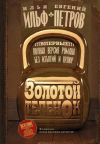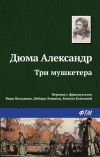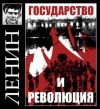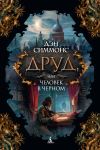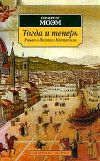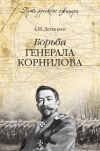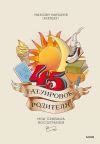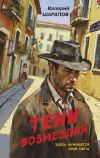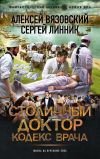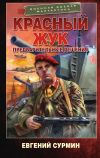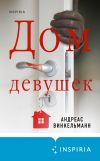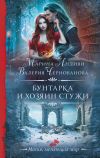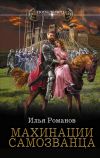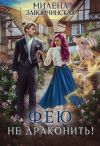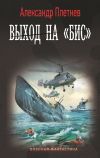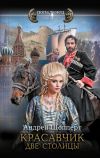Текст книги "Английский с Шерлоком Холмсом. Человек с рассеченной губой / Arthur Conan Doyle. Sherlock Holmes"
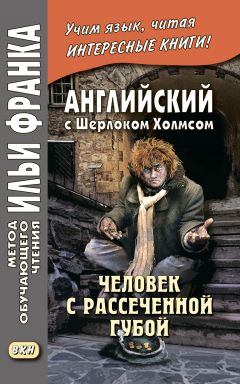
Автор книги: Артур Дойл
Жанр: Иностранные языки, Наука и Образование
Возрастные ограничения: +16
сообщить о неприемлемом содержимом
Текущая страница: 21 (всего у книги 21 страниц)
“You then roused his anger by calling him names at a moment (затем вы разозлили его: «вызвали его гнев» своими оскорблениями в тот момент) when he felt that he had deserved your warmest thanks (когда он заслуживал ваших самых искренних/теплых благодарностей). He could not explain the true state of affairs without betraying one (он не мог объяснить истинное положение вещей, чтобы не выдать ту) who certainly deserved little enough consideration at his hands (которая, безусловно, не заслуживала снисхождения и защиты от него; consideration – внимание, предупредительность; уважение; благодарность). He took the more chivalrous view, however, and preserved her secret (Артур повел себя как рыцарь и сохранил ее тайну; chivalrous – рыцарский, благородный).”
“And that was why she shrieked and fainted when she saw the coronet (вот почему она вскрикнула и упала в обморок, когда увидела диадему),” cried Mr. Holder. “Oh, my God! what a blind fool I have been (Боже мой! каким же я был слепым глупцом)! And his asking to be allowed to go out for five minutes (а ведь он просил позволить ему выйти на пять минут)! The dear fellow wanted to see if the missing piece were at the scene of the struggle (мой дорогой мальчик хотел посмотреть, не осталось ли пропавшего куска на месте борьбы). How cruelly I have misjudged him (как жестоко я в нем ошибался; to misjudge – составить себе неправильное, ошибочное мнение)!'
roused [raʋzd], chivalrous ['ʃɪv(ǝ)lrǝs], misjudged [mɪs'ʤʌʤd]
“Is it possible?” gasped the banker.
“You then roused his anger by calling him names at a moment when he felt that he had deserved your warmest thanks. He could not explain the true state of affairs without betraying one who certainly deserved little enough consideration at his hands. He took the more chivalrous view, however, and preserved her secret.”
“And that was why she shrieked and fainted when she saw the coronet,” cried Mr. Holder. “Oh, my God! what a blind fool I have been! And his asking to be allowed to go out for five minutes! The dear fellow wanted to see if the missing piece were at the scene of the struggle. How cruelly I have misjudged him!'
“When I arrived at the house (когда я прибыл в этот дом),” continued Holmes (продолжал Холмс), “I at once went very carefully round it to observe (я сразу же очень тщательно его обошел = осмотрел его, чтобы проверить) if there were any traces in the snow which might help me (нет ли на снегу каких-либо следов, которые могут мне помочь). I knew that none had fallen since the evening before (я знал, что со вчерашнего вечера снега не выпадало; to fall-fell-fallen), and also that there had been a strong frost to preserve impressions (и что сильный мороз, должно быть, сохранил следы). I passed along the tradesmen's path (я прошел по дорожке, по которой подвозят продукты), but found it all trampled down and indistinguishable (но она вся была утоптана, и /следы на ней/ были неразличимы; to distinguish – различать). Just beyond it, however, at the far side of the kitchen door (однако сразу за ней, на противоположной стороне от кухонной двери; far side – дальняя сторона: at the far side of the garden – в дальнем углу сада), a woman had stood and talked with a man (стояла женщина и разговаривала с мужчиной), whose round impressions on one side showed that he had a wooden leg (чьи круглые отпечатки с одной стороны показывали, что у него деревянная нога).
“I could even tell that they had been disturbed (я даже смог определить, что их побеспокоили), for the woman had run back swiftly to the door (поскольку женщина быстро побежала обратно к двери), as was shown by the deep toe and light heel marks (что видно по глубоким отпечаткам носков и слабым отпечаткам пяток), while Wooden-leg had waited a little, and then had gone away (в то время как «Деревянная нога» подождал немного, а затем ушел). I thought at the time that this might be the maid and her sweetheart (тогда я подумал, что это, должно быть, горничная и ее возлюбленный), of whom you had already spoken to me (о которых вы уже говорили мне), and inquiry showed it was so (и расследование показало, что так оно и есть). I passed round the garden without seeing anything more than random tracks (я обошел сад, но больше ничего не нашел, кроме беспорядочных следов; random – случайный; произвольный; беспорядочный), which I took to be the police (которые я посчитал следами полиции); but when I got into the stable lane (но когда я вышел на дорожку, ведущую к конюшне) a very long and complex story was written in the snow in front of me (очень длинная и запутанная история была написана на снегу передо мной).
preserve [prɪ'zɜ:v], path [pɑ:θ], random ['rændǝm]
“When I arrived at the house,” continued Holmes, “I at once went very carefully round it to observe if there were any traces in the snow which might help me. I knew that none had fallen since the evening before, and also that there had been a strong frost to preserve impressions. I passed along the tradesmen's path, but found it all trampled down and indistinguishable. Just beyond it, however, at the far side of the kitchen door, a woman had stood and talked with a man, whose round impressions on one side showed that he had a wooden leg.
“I could even tell that they had been disturbed, for the woman had run back swiftly to the door, as was shown by the deep toe and light heel marks, while Wooden-leg had waited a little, and then had gone away. I thought at the time that this might be the maid and her sweetheart, of whom you had already spoken to me, and inquiry showed it was so. I passed round the garden without seeing anything more than random tracks, which I took to be the police; but when I got into the stable lane a very long and complex story was written in the snow in front of me.
“There was a double line of tracks of a booted man (одна двойная линия следов, /принадлежавших/ обутому человеку), and a second double line which I saw with delight belonged to a man with naked feet (а вторая, как я с удовлетворением заметил, принадлежала человеку с босыми ногами). I was at once convinced from what you had told me (я сразу же понял, /вспомнив/, что вы мне говорили) that the latter was your son (что вторым человеком был ваш сын). The first had walked both ways (первый человек прошел туда и обратно), but the other had run swiftly (а второй быстро пробежал), and as his tread was marked in places over the depression of the boot (и, так как его следы кое-где остались поверх отпечатков ботинок), it was obvious that he had passed after the other (было ясно, что он преследовал другого = что второй преследовал первого). I followed them up and found they led to the hall window (я пошел по следам и обнаружил, что они ведут к окну гостиной), where Boots had worn all the snow away while waiting (где этот «Ботинки» истоптал весь снег, ожидая /кого-то/; to wear away – стирать, изнашивать).
“Then I walked to the other end (затем я пошел к другому концу /следов/), which was a hundred yards or more down the lane (они тянулись по дорожке на сотню ярдов или больше). I saw where Boots had faced round (я увидел, где «Ботинки» развернулся), where the snow was cut up as though there had been a struggle (в том месте снег был сильно истоптан, словно там произошла борьба; to cut up – разрезать, разрубать на куски; разбивать, уничтожать), and, finally, where a few drops of blood had fallen (и наконец /я нашел место/, где упало несколько капель крови), to show me that I was not mistaken (и это свидетельствовало о том, что я не ошибся). Boots had then run down the lane (человек в ботинках затем побежал по дорожке), and another little smudge of blood showed (а еще одно небольшое пятно крови говорило о том) that it was he who had been hurt (что ранен был именно он). When he came to the highroad at the other end (когда он вышел на главную дорогу; highroad – большая/столбовая дорога; главный путь), I found that the pavement had been cleared (я обнаружил, что /снег/ с тротуара был счищен), so there was an end to that clew (и там следы обрывались; clew = clue – путеводная нить; улика).
naked ['neɪkɪd], blood [blʌd], pavement ['peɪvmǝnt]
“There was a double line of tracks of a booted man, and a second double line which I saw with delight belonged to a man with naked feet. I was at once convinced from what you had told me that the latter was your son. The first had walked both ways, but the other had run swiftly, and as his tread was marked in places over the depression of the boot, it was obvious that he had passed after the other. I followed them up and found they led to the hall window, where Boots had worn all the snow away while waiting.
“Then I walked to the other end, which was a hundred yards or more down the lane. I saw where Boots had faced round, where the snow was cut up as though there had been a struggle, and, finally, where a few drops of blood had fallen, to show me that I was not mistaken. Boots had then run down the lane, and another little smudge of blood showed that it was he who had been hurt. When he came to the highroad at the other end, I found that the pavement had been cleared, so there was an end to that clew.
“On entering the house, however, I examined, as you remember (войдя в дом, я осмотрел, как вы помните), the sill and framework of the hall window with my lens (подоконник и раму окна гостиной с помощью лупы), and I could at once see that someone had passed out (и сразу обнаружил, что кто-то вылезал из окна; to pass – идти, проходить, переходить). I could distinguish the outline of an instep (я смог разглядеть очертания следа /там/; outline – очертание, контур, абрис; instep – подъем /ноги, ботинка/) where the wet foot had been placed in coming in (где /кто-то/ поставил мокрую ногу, залезая внутрь). I was then beginning to be able to form an opinion as to what had occurred (тогда я был в состоянии составить мнение относительно того, что произошло). A man had waited outside the window (какой-то человек ждал на улице у окна); someone had brought the gems (кто-то принес /и передал ему/ камни); the deed had been overseen by your son (это действие случайно увидел ваш сын); he had pursued the thief (он погнался за вором); had struggled with him (вступил с ним в борьбу); they had each tugged at the coronet (каждый из них тянул диадему /к себе/), their united strength causing injuries which neither alone could have effected (их общее усилие вызвало такие повреждения, которые ни один из них не смог бы причинить /диадеме/ в одиночку). He had returned with the prize (Артур вернулся с диадемой: «наградой»), but had left a fragment in the grasp of his opponent (но оставил кусок в руках у противника; grasp – схватывание; крепкое сжатие; хватка). So far I was clear (пока все было понятно). The question now was (но возникал вопрос), who was the man and who was it who brought him the coronet (кто же тот человек, и кто принес ему диадему)?
opinion [ǝ'pɪnjǝn], brought [brɔ:t], pursued [pǝ'sju:d], grasp [ɡrɑ:sp]
“On entering the house, however, I examined, as you remember, the sill and framework of the hall window with my lens, and I could at once see that someone had passed out. I could distinguish the outline of an instep where the wet foot had been placed in coming in. I was then beginning to be able to form an opinion as to what had occurred. A man had waited outside the window; someone had brought the gems; the deed had been overseen by your son; he had pursued the thief; had struggled with him; they had each tugged at the coronet, their united strength causing injuries which neither alone could have effected. He had returned with the prize, but had left a fragment in the grasp of his opponent. So far I was clear. The question now was, who was the man and who was it who brought him the coronet?
“It is an old maxim of mine that (мой старый принцип /расследования состоит в том, что/; maxim – афоризм, изречение; правило поведения, принцип) when you have excluded the impossible (когда исключаешь невозможное), whatever remains, however improbable, must be the truth (то, что остается, каким бы неправдоподобным оно ни казалось, является истиной). Now, I knew that it was not you who had brought it down (итак, я знал, что это не вы отдали диадему), so there only remained your niece and the maids (значит, оставались только ваша племянница и горничные). But if it were the maids (если это горничные), why should your son allow himself to be accused in their place (то ради чего вашему сыну позволять себя обвинить вместо них: «на их месте» = зачем тогда ваш сын согласился взять вину на себя)? There could be no possible reason (для этого не было возможных оснований). As he loved his cousin, however, there was an excellent explanation (однако, поскольку он любит свою кузину, то появлялось великолепное объяснение) why he should retain her secret (почему он сохранил ее тайну) – the more so as the secret was a disgraceful one (тем более, что это была позорная тайна; disgrace – позор, бесчестье; унижение). When I remembered that you had seen her at that window (когда я вспомнил, что вы видели ее у окна), and how she had fainted on seeing the coronet again (и что она упала в обморок, увидев диадему снова), my conjecture became a certainty (мое предположение превратилось в уверенность).
excluded [ɪk'sklu:dɪd], truth [tru:θ], conjecture [kǝn'ʤekʧǝ]
“It is an old maxim of mine that when you have excluded the impossible, whatever remains, however improbable, must be the truth. Now, I knew that it was not you who had brought it down, so there only remained your niece and the maids. But if it were the maids, why should your son allow himself to be accused in their place? There could be no possible reason. As he loved his cousin, however, there was an excellent explanation why he should retain her secret – the more so as the secret was a disgraceful one. When I remembered that you had seen her at that window, and how she had fainted on seeing the coronet again, my conjecture became a certainty.
“And who could it be who was her confederate (но кто же мог быть ее сообщником)? A lover evidently, for who else could outweigh the love and gratitude (очевидно, возлюбленный, потому что кто еще мог пересилить любовь и благодарность) which she must feel to you (которые она должна была питать к вам = должно быть, питала к вам)? I knew that you went out little (я знал, что вы мало бываете в обществе), and that your circle of friends was a very limited one (и что круг ваших друзей очень ограничен). But among them was Sir George Burnwell (но среди них был сэр Джордж Бэрнвелл). I had heard of him before as being a man of evil reputation among women (я и раньше слышал о нем как о человеке дурной репутации среди женщин = что он нехорошо поступает по отношению к женщинам). It must have been he who wore those boots and retained the missing gems (должно быть, это он носил те ботинки и держал у себя пропавшие бериллы = это он человек в ботинках, и у него находятся пропавшие бериллы; to wear – носить /обувь, одежду/; to retain – держать /у себя/; удерживать). Even though he knew that Arthur had discovered him (даже если он и понимал, что Артур узнал его), he might still flatter himself that he was safe (он все равно мог тешить себя мыслью, что находится в безопасности; safe – защищенный от опасности; в безопасности), for the lad could not say a word without compromising his own family (так как ваш сын не мог бы сказать ни слова, не скомпрометировав /при этом/ свою собственную семью).
“Well, your own good sense will suggest what measures I took next (ваш здравый смысл предположит = логика подскажет вам, какие меры я предпринял затем). I went in the shape of a loafer to Sir George's house (переодевшись бродягой: «в виде бродяги» я отправился к дому сэра Джорджа), managed to pick up an acquaintance with his valet (сумел познакомиться с его лакеем), learned that his master had cut his head the night before (узнать он него, что его хозяин расшиб голову накануне вечером), and, finally, at the expense of six shillings (и наконец за шесть шиллингов: «ценой шести шиллингов»), made all sure by buying a pair of his cast-off shoes (удостовериться во всем, купив пару старых ботинок сэра Джорджа; cast-off – выброшенная, ненужная вещь). With these I journeyed down to Streatham (с ними я отправился в Стритем) and saw that they exactly fitted the tracks (и убедился, что они в точности соответствуют следам /на снегу/).”
outweigh [aʋt'weɪ], among [ǝ'mʌŋ], compromising ['kɒmprǝmaɪzɪŋ], measure ['meʒǝ]
“And who could it be who was her confederate? A lover evidently, for who else could outweigh the love and gratitude which she must feel to you? I knew that you went out little, and that your circle of friends was a very limited one. But among them was Sir George Burnwell. I had heard of him before as being a man of evil reputation among women. It must have been he who wore those boots and retained the missing gems. Even though he knew that Arthur had discovered him, he might still flatter himself that he was safe, for the lad could not say a word without compromising his own family.
“Well, your own good sense will suggest what measures I took next. I went in the shape of a loafer to Sir George's house, managed to pick up an acquaintance with his valet, learned that his master had cut his head the night before, and, finally, at the expense of six shillings, made all sure by buying a pair of his cast-off shoes. With these I journeyed down to Streatham and saw that they exactly fitted the tracks.”
“I saw an ill-dressed vagabond in the lane yesterday evening (я видел какого-то скверно одетого бродягу на тропинке вчера вечером),” said Mr. Holder.
“Precisely (совершенно верно). It was I (это был я). I found that I had my man (я понял, что сэр Джордж у меня в руках: «что я получил моего человека»), so I came home and changed my clothes (поэтому я пошел домой и переоделся: «переменил одежду»). It was a delicate part which I had to play then (мне нужно было играть деликатную роль = действовать очень осторожно), for I saw that a prosecution must be avoided to avert scandal (так как я осознавал, что необходимо было избежать /судебного/ преследования, чтобы предотвратить скандал; prosecution – ведение /войны, судебного дела и т. д./; судебное преследование; обвинение; to avoid – избегать, остерегаться, сторониться, уклоняться), and I knew that so astute a villain would see that our hands were tied in the matter (и знал, что такой хитрый/проницательный негодяй понимает, что у нас связаны руки). I went and saw him (я пошел и навестил его). At first, of course, he denied everything (сначала он, разумеется, все отрицал). But when I gave him every particular that had occurred (но когда я рассказал во всех подробностях, что произошло /ночью/; particular – частность, подробность; particulars – подробный отчет: to give particulars of – давать /представлять/ подробный отчет), he tried to bluster and took down a life-preserver from the wall (он попытался угрожать и снял со стены тяжелую трость; life-preserver: «спаситель жизни» – спасательный пояс, спасательный жилет; тяжелая дубинка или трость, налитая свинцом /применяемая для самообороны/). I knew my man, however (однако я знал его = с кем имею дело), and I clapped a pistol to his head before he could strike (я приставил револьвер к его голове, прежде чем тот успел ударить; to clap – хлопать; сделать быстрое, энергичное движение). Then he became a little more reasonable (тогда он стал немного благоразумнее). I told him that we would give him a price for the stones he held 1000 pounds apiece (я сказал, что мы дадим ему за камни, которые он держит у себя, по тысяче фунтов за каждый). That brought out the first signs of grief that he had shown (тут он обнаружил первые признаки огорчения; to bring out – выявлять, обнаруживать).
'Why, dash it all (черт побери)!' said he, 'I've let them go at six hundred for the three (я уже отдал три камня за шестьсот /фунтов/)!'
vagabond ['væɡǝbɒnd], astute [ǝ'stju:t], denied [dɪ'naɪd], life-preserver ['laɪfprɪ,zɜ:vǝ]
“I saw an ill-dressed vagabond in the lane yesterday evening,” said Mr. Holder.
“Precisely. It was I. I found that I had my man, so I came home and changed my clothes. It was a delicate part which I had to play then, for I saw that a prosecution must be avoided to avert scandal, and I knew that so astute a villain would see that our hands were tied in the matter. I went and saw him. At first, of course, he denied everything. But when I gave him every particular that had occurred, he tried to bluster and took down a life-preserver from the wall. I knew my man, however, and I clapped a pistol to his head before he could strike. Then he became a little more reasonable. I told him that we would give him a price for the stones he held 1000 pounds apiece. That brought out the first signs of grief that he had shown.
'Why, dash it all!' said he, 'I've let them go at six hundred for the three!'
“I soon managed to get the address of the receiver who had them (вскоре мне удалось узнать адрес скупщика, у которого были камни; receiver – получатель; укрыватель или скупщик краденого), on promising him that there would be no prosecution (пообещав сэру Джорджу, что /против него/ не будет возбуждено расследование). Off I set to him, and after much chaffering I got our stones at 1000 pounds apiece (я поехал туда и после долгого торга выкупил камни по тысяче фунтов каждый; to chaffer – спорить о цене, торговаться). Then I looked in upon your son (затем я навестил вашего сына), told him that all was right (сказал ему, что все в порядке), and eventually got to my bed about two o'clock (и в конце концов около двух /ночи/ лег спать: «добрался до кровати»), after what I may call a really hard day's work (после действительно тяжелого трудового дня).”
“A day which has saved England from a great public scandal (дня, который спас Англию от огромного государственного скандала),” said the banker, rising (сказал банкир, поднимаясь). “Sir, I cannot find words to thank you (сэр, у меня не хватает слов, чтобы выразить благодарность), but you shall not find me ungrateful for what you have done (но вы не найдете меня неблагодарным за то, что вы сделали = вы убедитесь, что я не забуду того, что вы сделали). Your skill has indeed exceeded all that I have heard of it (ваше искусство действительно превзошло все, что я слышал о нем). And now I must fly to my dear boy (а сейчас я должен поспешить к моему дорогому мальчику) to apologize to him for the wrong which I have done him (и извиниться перед ним за то, что так несправедливо обошелся с ним; wrong – зло, несправедливость). As to what you tell me of poor Mary (что касается вашего рассказа о бедной Мэри), it goes to my very heart (то он проник в самое мое сердце = ее поступок глубоко поразил меня). Not even your skill can inform me where she is now (но даже вы со всем вашим искусством не сможете сообщить мне, где она).”
“I think that we may safely say (думаю, можно с уверенностью сказать; safely – безопасно; надежно: it may safely be said – можно с уверенностью сказать),” returned Holmes (возразил Холмс), “that she is wherever Sir George Burnwell is (что она там же, где и сэр Джордж Бэрнвелл). It is equally certain, too, that whatever her sins are (и несомненно также, что, каковы бы ни были ее грехи; equally – в равной степени; равным образом), they will soon receive a more than sufficient punishment (они в скором времени получат = скоро она понесет за них более чем достаточное наказание).”
receiver [rɪ'si:vǝ], wrong [rɒŋ], sufficient [sǝ'fɪʃ(ǝ)nt]
“I soon managed to get the address of the receiver who had them, on promising him that there would be no prosecution. Off I set to him, and after much chaffering I got our stones at 1000 pounds apiece. Then I looked in upon your son, told him that all was right, and eventually got to my bed about two o'clock, after what I may call a really hard day's work.”
“A day which has saved England from a great public scandal,” said the banker, rising. “Sir, I cannot find words to thank you, but you shall not find me ungrateful for what you have done. Your skill has indeed exceeded all that I have heard of it. And now I must fly to my dear boy to apologize to him for the wrong which I have done him. As to what you tell me of poor Mary, it goes to my very heart. Not even your skill can inform me where she is now.”
“I think that we may safely say,” returned Holmes, “that she is wherever Sir George Burnwell is. It is equally certain, too, that whatever her sins are, they will soon receive a more than sufficient punishment.”
Правообладателям!
Это произведение, предположительно, находится в статусе 'public domain'. Если это не так и размещение материала нарушает чьи-либо права, то сообщите нам об этом.











